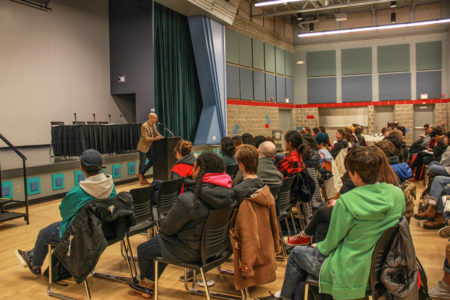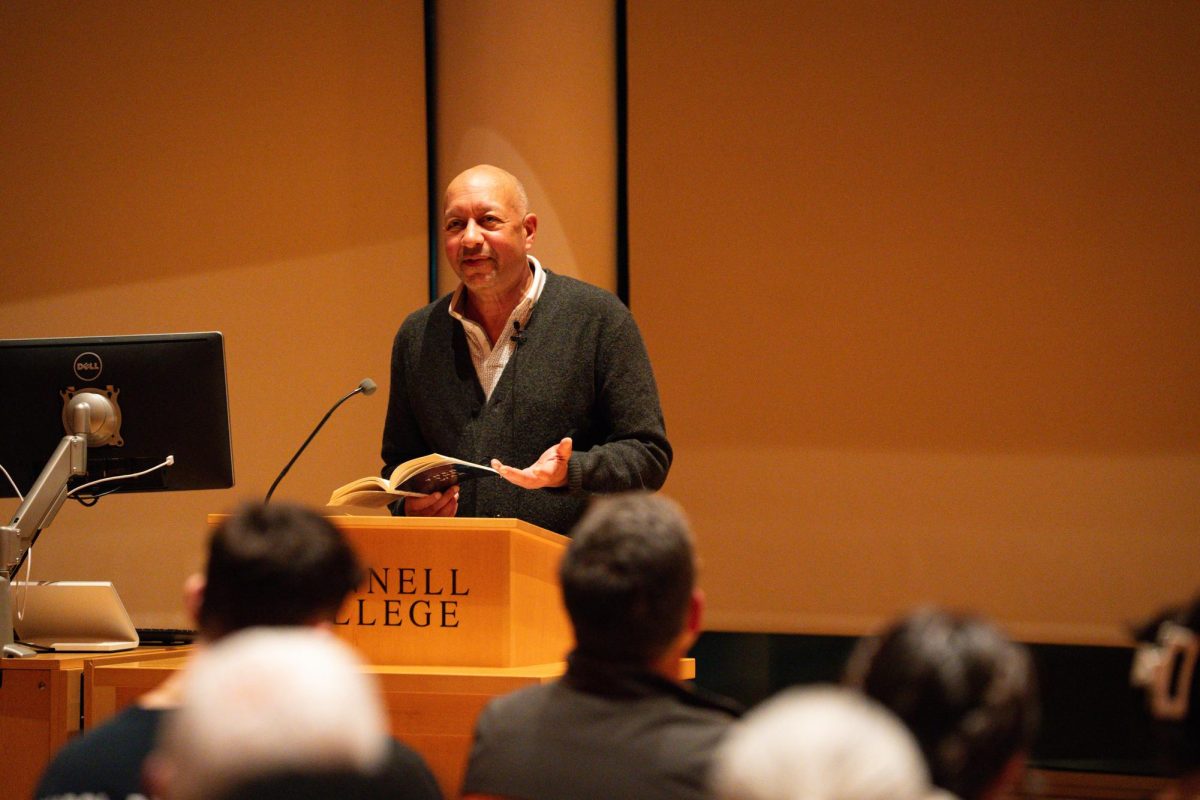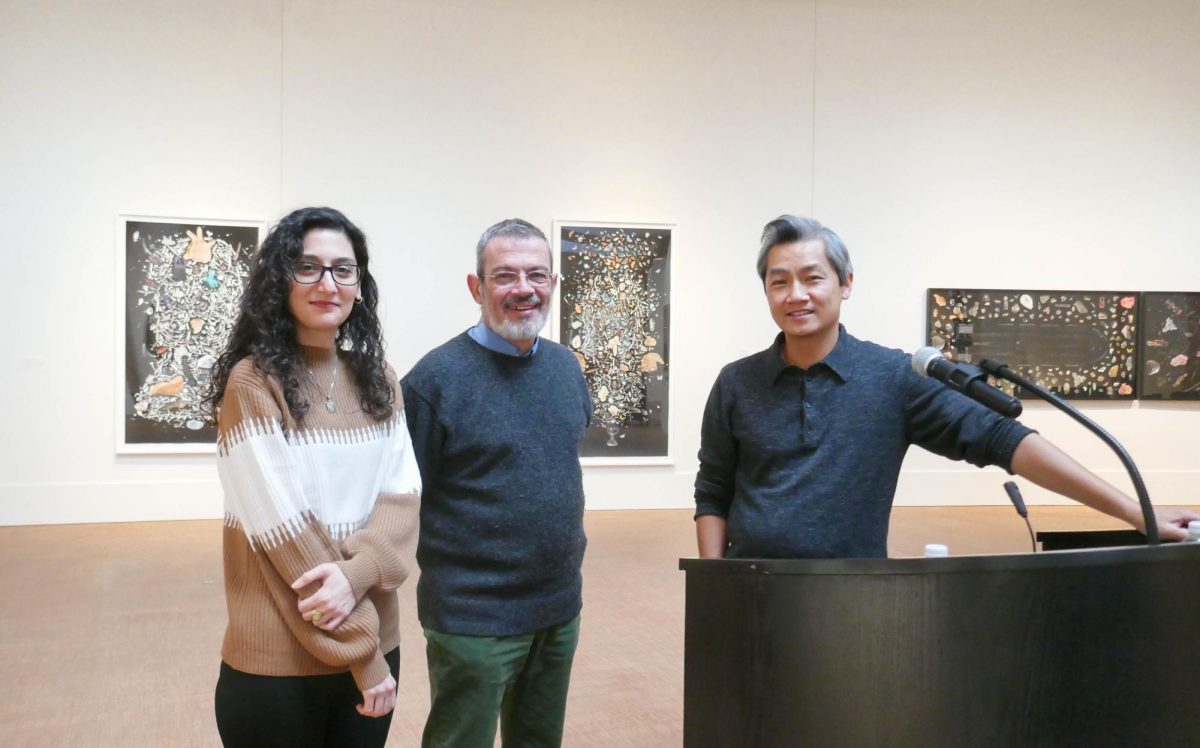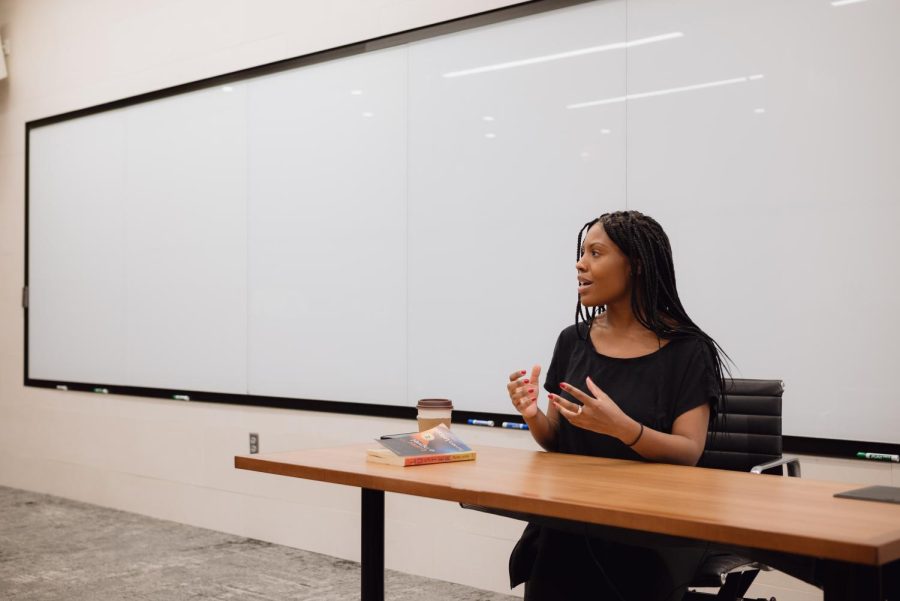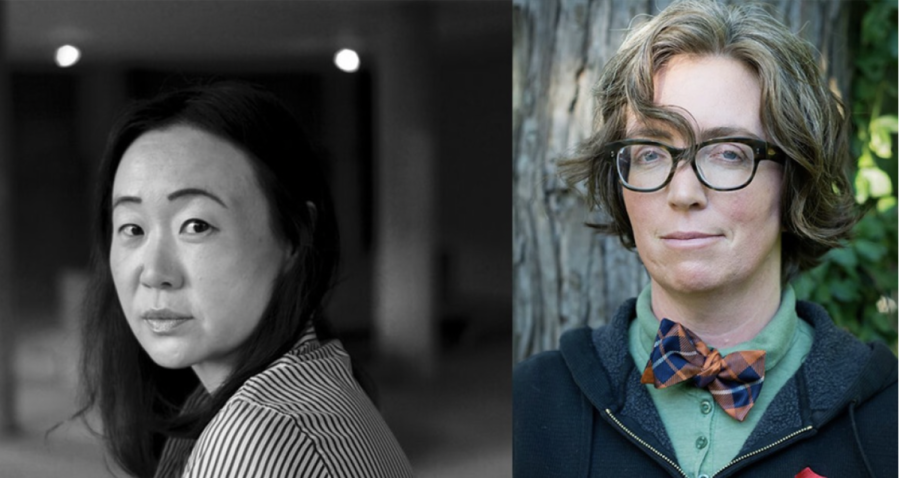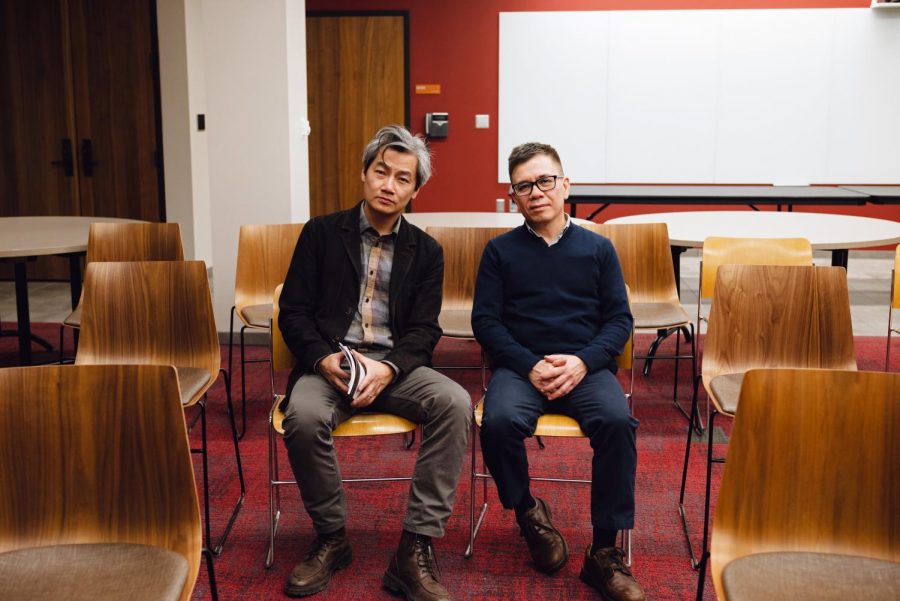On Feb. 28, three novelists, Lan Samantha Chang, Christopher Castellani and Margot Livesey, gave roundtable discussions and lectures at the College on the topic of the craft of fiction. At the roundtable, the writers spoke in depth about their writing process and recent work.
The roundtable took a unique format in which Dean Bakopoulos, English, hosted a recorded live panel that will be turned into a podcast in the coming weeks.
The writers discussed the most frequent advice they give their creative writing students. Castellani discussed the merit he has found in writing without hesitating or going back to revise, at least at first. Livesy related an anecdote involving a Ph.D. student in rhetoric who studied her fiction writing process. Тhis student noticed that she had been fixing small mistakes rather than developing the narrative.
The discussion also evaluated the use of historical research in fiction, which Castellani had to do extensively in order to write his new novel, “Leading Men.” Castellani’s novel is a fictionalized account of Tennessee Williams and his partner of fifteen years, Frank Merlot. Castellani’s initial interest was due to his identification with Merlot, as both men come from working class Italian-American families on the East Coast.
“Writers are notoriously scavengers. We’ll take inspiration from whatever we can and apply it to our purposes,” Castellani said. “Part of it is recognizing what you’re inspired by and taking it for your own work.”
Chang described how historical fiction, for her, serves as an escape. She wrote a book called “Inheritance,” about the secret lives of her Chinese immigrant parents.
Livesy said “writing what she knows,” didn’t seem as exciting. “I didn’t know that much,” she said, “and I loved doing research.”
When the discussion opened up to audience members, the first questioner asked the authors how they know when their work is bad.
“Sometimes I look at [my work] and think, ‘This is pretentious drivel,’” said Chang.
Castellani said he feels that his work is bad “every single day.” Regardless of this feeling, however, he keeps going: “The thing that keeps pulling me back is the one that should be written.”
“I’m always looking at that place in between my private interests and what could be publicly interesting,” Livesy said.
Castellani also offered his own insight on the nature of authorship in writing historical fiction.
“In the phrase ‘historical fiction,’ the noun always trumps the adjective,” Castellani said. “The fiction is always the most important part. It’s ultimately an interpretation. You should be judged on the coherence, the originality, the uniqueness, the vividness of that portrayal.”
